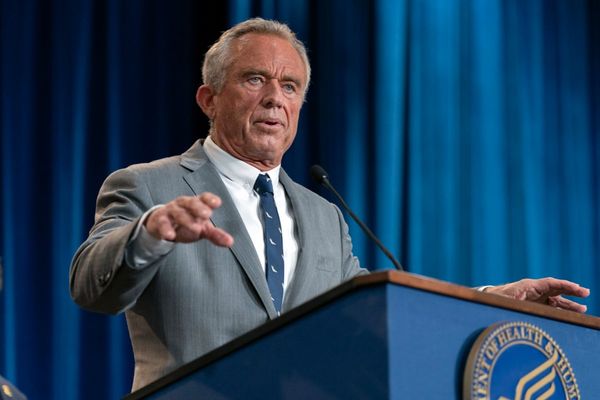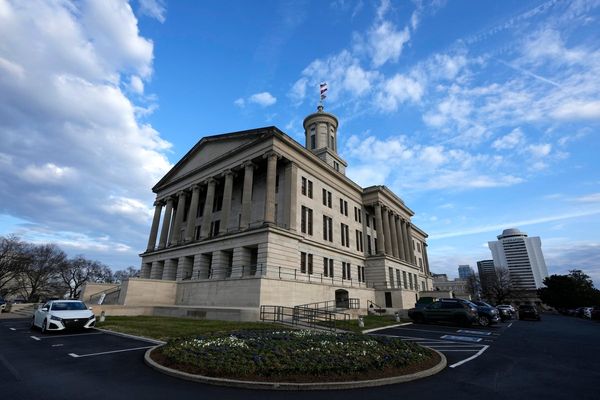
As France heads for snap elections, political parties' economic policies are under extra scrutiny after the European Commission this week rebuked the country over its failure to keep its budget deficit within EU limits.
The Commission’s announcement on Wednesday has added to concerns that the high-spending programmes of both the far-right National Rally (RN) and New Popular Front (NPF) left-wing alliance will dig an even bigger hole in public finances.
The NPF announced on Friday that, if elected, it would push public spending up to 100 billion euros next year.
"In the year of 2025, public spending could reach 100 billion euros," senior alliance member Eric Coquerel told reporters, adding that tax hikes would in turn generate 100 billion euros in 2025 and 150 billion in 2026-2027.
The NPF also aims to raise public sector wages, link salaries to inflation, cut income tax and social security for lower earners, and introduce a wealth tax for the rich.
Notably, it has pledged to reverse President Emmanuel Macron's controversial pension reforms and bring the retirement age back down to 60.
Tax cuts galore
The anti-immigration RN, which is leading the polls, has also committed to reducing the age of retirement to 60, but only for those who began working aged 20 or under.
The party has promised to cut VAT on petrol, oil, gas and electricity – measures the Finance Ministry estimates at 16.8 billion euros per year.
The party has not said how it would compensate for the loss of revenue.
The RN measures are “both vague and changeable”, economist Sylvain Bersinger was quoted as saying in La Tribune.
Faced with criticism that its spending plans would crash the economy, the party sought to reassure.
At a meeting on Thursday organised by the Medef, France’s leading employers’ union, RN leader Jordan Bardella said: “I’ve understood that I need to reassure people.”
He said his government would introduce a revised 2024 budget over the summer and measures would include cutting production taxes on companies.
France should also cut its contribution to the European Union, he said.
He would, however, launch an audit of public finances before deciding on how far and how fast to go with reforms.
‘No tax hikes, no matter what'
Macron’s centrist Together camp is portraying both the RN and NPF as irresponsible, with unfunded spending promises that threaten to increase the national debt.
Finance Minister Bruno Le Maire described the policy proposals of both RN and LPF as “crazy”.
But the Together alliance is also facing scrutiny over its book-keeping. France has accumulated an additional €900 billion of debt since Macron came to power in 2017.
And the country’s deficit – the difference between government spending and revenues – amounted to 5.5 percent of economic output in 2023. It is forecast to remain at 5 percent in 2025, way above the 3 percent EU threshold.
Le Maire reiterated a pledge to return the budget deficit to below 3 percent of GDP and said investors cared most about stability, and only the ruling Together alliance could provide that.
Earlier, Prime Minister Gabriel Attal said if the Together alliance remained in power it would lower power bills, soften inheritance tax and link pensions to inflation to ease the strain on household finances.
But he insisted there would be “no tax hikes, no matter what”.
'Not reassured'
At Thursday's Medef meeting, business leaders were less than impressed by any of the camps’ economic proposals.
“None of them have reassured me,” said Sophie de Menton, head of a smaller employers’ group, Mouvement Ethic.
The latest survey, conducted by pollsters Ifop, put support for the RN at 34 percent, with the NPF on 29 percent and Macron's Together alliance on 22 percent.
Macron’s shock decision to dissolve parliament and call snap elections after the RN’s strong performance in European elections has caused the euro and French stocks to tumble and France’s borrowing costs to rise.
Investors are nervous at the prospect of a high-spending RN or NPF-led government, or of political gridlock if no party gets an absolute majority, which would make it hard to get legislation passed.
(with newswires)







